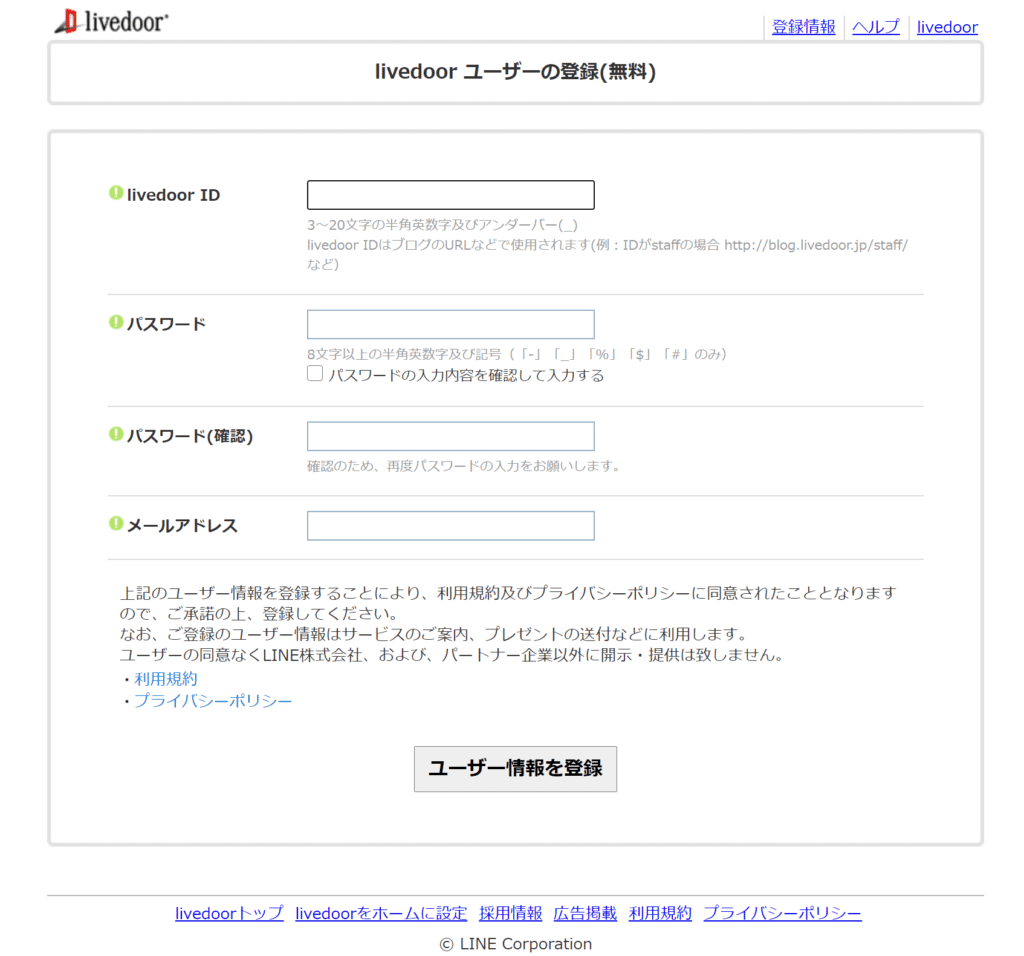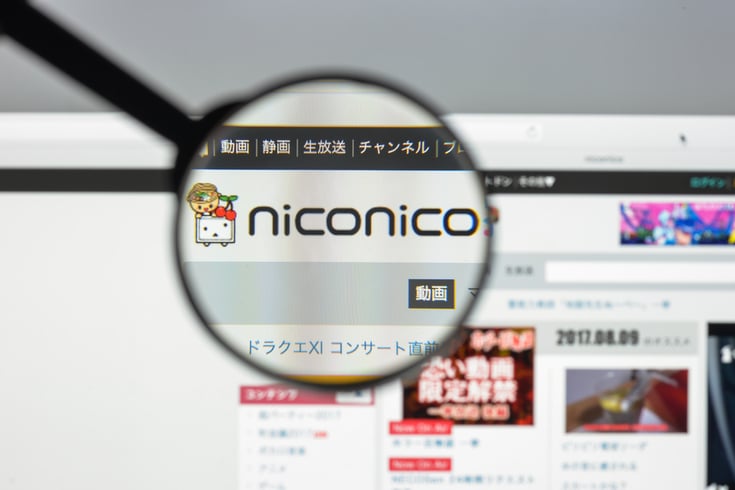Methods to Identify Visitors of Livedoor Blog Beyond Footprints

Livedoor Blog is a blogging service operated by LINE Corporation. With Livedoor Blog, you can set a password for your entire blog and make it visible only to your friends. However, if you don’t set such restrictions, anyone can read your blog posts. Furthermore, unless the blog administrator sets specific restrictions, anyone can post comments on the articles. Therefore, there may be cases where comments that could be considered defamatory are posted on blog articles.
So, if malicious comments are posted on a Livedoor Blog article, is it possible to identify the person who posted the comment? In this article, we will explain how to identify visitors and comment posters on Livedoor Blog articles.
What is Livedoor Blog?
Livedoor Blog is a platform where anyone can register for free and start blogging. The categories on Livedoor Blog are diverse, including illustrated diaries, marriage hunting, gourmet food, pets, and many more. A wide range of people, from celebrities to ordinary individuals, use Livedoor Blog to write their blog posts. Livedoor Blog also has an app, which allows you to update your blog, check comments and messages from your mobile device. Additionally, it has a feature that allows simultaneous posting to Twitter and Facebook.
Examples of Defamatory Comments Posted on Livedoor Blog Articles

On Livedoor Blog, if the blog administrator has set it to accept all comments, anyone can write comments on the articles. Therefore, there may be cases where malicious comments that could be considered defamation or slander are posted. What kind of examples can be considered for defamatory comments posted on Livedoor Blog articles?
- (In response to a company introduction article) “The president of this company is deceiving women by registering on the Pairs dating app under the name ○○.”
- (In response to a travel article) “The innkeeper named A at this inn was really the worst. You’re better off not staying there.”
The above examples of comments, if deemed to fall under the prohibited acts 2. and 3. of the Livedoor Blog Terms of Use 1.4.1 (quoted below) upon request for transmission prevention measures (deletion), may be subject to transmission prevention measures (including hiding) based on the Terms of Use 1.4.2.
2. Acts that infringe or may infringe on the property, privacy, personality rights, or portrait rights of the Company or others
Livedoor Blog Terms of Use 1.4.1 Prohibited Acts (excerpt)
3. Acts that discriminate or defame others, damage or insult the honor or credit of others, or interfere with their business, or acts that may do so
Also, according to the Livedoor Blog Guidelines, the rights such as copyright of the comments belong to the blog administrator, so you can request the blog administrator to delete them. However, if the comment is not deleted even after requesting deletion, or if you suffer significant damage due to the comment, you will have to respond by identifying the poster.
What is the Footprint Feature of Livedoor Blog?
Before explaining the process of identifying a poster, let’s take a look at how far we can identify blog visitors and comment posters using the footprint feature of Livedoor Blog. Livedoor Blog has an access analysis function, which allows you to check the number of accesses, popular articles, sources of links, browser/OS, and raw logs. Raw logs provide detailed information on the latest 200 accesses (up to the past three days). It displays which articles were viewed, and you can also check the visitor’s remote host and IP address.
If there are a large number of comments or visits from the same poster, this footprint feature may allow you to identify the IP address of the comment poster. However, in a situation where many people are accessing, it would be difficult to single out and identify the poster of a particular comment. In that case, you would consider the process of identifying the poster.
What is the Process of Identifying a Poster?
The process of identifying a poster is carried out in the following order:
- Request for IP address disclosure
- Order or notification to prohibit log deletion
- Request for disclosure of name and address
- Claim for damages
We will explain each step in detail below.
Procedure 1 for Identifying the Poster: Request for IP Address Disclosure
The first step in identifying the author of malicious comments on Livedoor Blog is to request the disclosure of the IP address.
What is an IP Address?
An IP address is a number used when communicating on the Internet with devices such as PCs and smartphones. It serves as an address on the Internet and is also assigned to devices connected to the network, such as printers.

As shown in the image above, you can register as a user on Livedoor Blog by entering your ID, password, and email address. You can also post comments with a nickname without registering as a user.
Therefore, if the comment poster is not a registered user, the operator of Livedoor Blog cannot identify the poster’s personal information. Even if the poster is a registered user, it is likely that the only personal information known is the email address. Even if the email address is known, it is difficult to identify the poster of the comment by the email address alone. Furthermore, it is often the case that comments that could be considered slanderous are posted without user registration. Therefore, to identify the poster, it is necessary to disclose the IP address.
Request for Disclosure of Comment Poster’s IP Address
The request for IP address disclosure is a procedure carried out through the courts, but it can be done through a procedure called provisional disposition, not a lawsuit. While lawsuits often take more than a year, provisional dispositions often end sooner, in about 1-2 months. The average attorney’s fee for this procedure is said to be around 300,000 yen for the retainer and 300,000 yen for the success fee, according to information on the Internet.
Retainer fee is about 300,000 yen, success fee is about 300,000 yen
https://monolith.law/reputation/reputation-lawyers-fee[ja]
In this procedure, it is possible to request both the disclosure and deletion of the IP address at the same time. The above fees are for both procedures. However, the cost will naturally vary depending on the content and volume of the posts in question.
Malicious comments that are believed to violate the terms of use or guidelines of Livedoor Blog may be deleted if you request a transmission prevention measure (deletion) or ask the blog administrator to delete them. However, if the comments are not deleted even after a deletion request, you may need to consider requesting the disclosure of the IP address. For more information on how to delete reviews on Livedoor Blog, please refer to the article below.
https://monolith.law/reputation/deletion-of-comments-of-livedoor-blog[ja]
Proving the Illegality of the Post
If a comment that violates the prohibited matters of the Livedoor Blog Terms of Use is posted, LINE Corporation is allowed to delete that comment. In this case, it is certain that the comment violates the Livedoor Blog Terms of Use, but it does not necessarily mean that it is illegal. In some cases, the comment may be deleted even if there is no illegality, especially if a deletion request is made to LINE Corporation or the blog administrator.
On the other hand, in order for the court to issue an order to disclose the IP address, the following two things are necessary:
- A legal argument demonstrating the illegality of the post
- Evidence to support the above
You must make a legal argument about the illegality of the comment and prepare evidence to prove its illegality. Such legal arguments and preparation of evidence can be difficult without knowledge of the law. It is recommended to consult a lawyer with extensive knowledge of online slander measures.
Procedure 2 for Identifying the Poster: Order to Prohibit Deletion of Logs

Once you have obtained the IP address by receiving the disclosure order in Procedure 1, you can identify the provider that the comment poster was using. The provider has logs (records of the date and time of operations, the content of operations, and data sent and received) of the person using that IP address. However, logs are not stored indefinitely. In particular, mobile lines have a short retention period and are deleted after about three months. Therefore, you must obtain an order prohibiting the provider from deleting the logs. Another separate legal procedure is required to obtain this prohibition order.
However, there are cases where the logs can be preserved without going through a legal procedure if you issue a notice saying, “We are requesting the disclosure of the name and address, so please do not delete the logs until the order is issued.” Instead of immediately initiating a lawsuit, it may be better to consider issuing a notice. However, when issuing this notice, it is necessary to assert and prove the illegality of the comment.
It may be difficult to create this notice on your own, as there are not many examples available on the internet. You should consult with a knowledgeable attorney about these procedures and have them create it for you.
Procedure 3 for Identifying the Poster: Request for Disclosure of Name and Address
After notifying the request for log preservation in the above Procedure 2, we will proceed with the request for disclosure of the commenter’s name and address to the provider. The request for disclosure of name and address cannot be done through provisional measures, but must be done through formal legal proceedings.
For example, if a comment is posted on a Livedoor blog article about cosmetics saying, “My skin broke out after using this product. Despite the fact that the ingredient ‘XX’ is banned overseas due to its harmfulness, it is heavily used in this product,” and if there is persuasive evidence for the post, and it is considered to be in the public interest to make the comment known, it can be said that the poster’s privacy should be respected. The name and address are particularly important pieces of personal information. Therefore, they cannot be disclosed easily.
The court conducts careful deliberations and only issues an order to disclose the name and address after going through formal legal proceedings and determining that the post is illegal.
Step 4 in Identifying the Poster: Claim for Damages
If the request for disclosure of the name and address is approved in Step 3, the name and address of the subscriber of the line used when the poster posted the comment will be disclosed. Once the name and address are known, you can claim for costs such as attorney’s fees and consolation money incurred in the series of procedures.
If you make a claim for damages and apply the damages to the attorney’s fees, the victim will not incur any costs. However, there is a possibility that the identification of the poster may fail, or even if the poster can be identified, the damages may not be sufficient to cover the attorney’s fees. We explain this point in detail in the following article.
https://monolith.law/reputation/disclosure-of-ipaddress[ja]
Summary
Livedoor Blog is a blogging service where users can register their information for free and create blog posts or leave comments. Comments can be made without registering user information. Therefore, there may be cases where comments that could be considered defamatory are posted. With Livedoor Blog’s footprint function, you can check the IP addresses of visitors for the past three days, but it may be difficult to identify which IP address belongs to the malicious commenter. Several legal procedures are necessary to identify the poster of malicious articles or comments. If the legal procedures are successful and the poster can be identified, it is possible to claim damages from the poster. However, the legal fees involved in these procedures are not cheap, so even if damages are paid by the poster, they may not cover the legal fees or the amount of damages.
The procedure to identify the poster involves multiple legal procedures and requires extensive expertise. It is a complex procedure. If you are having trouble with malicious comments on Livedoor Blog, it is advisable to consult with a lawyer who is knowledgeable about online defamation measures as soon as possible.
Category: Internet





















